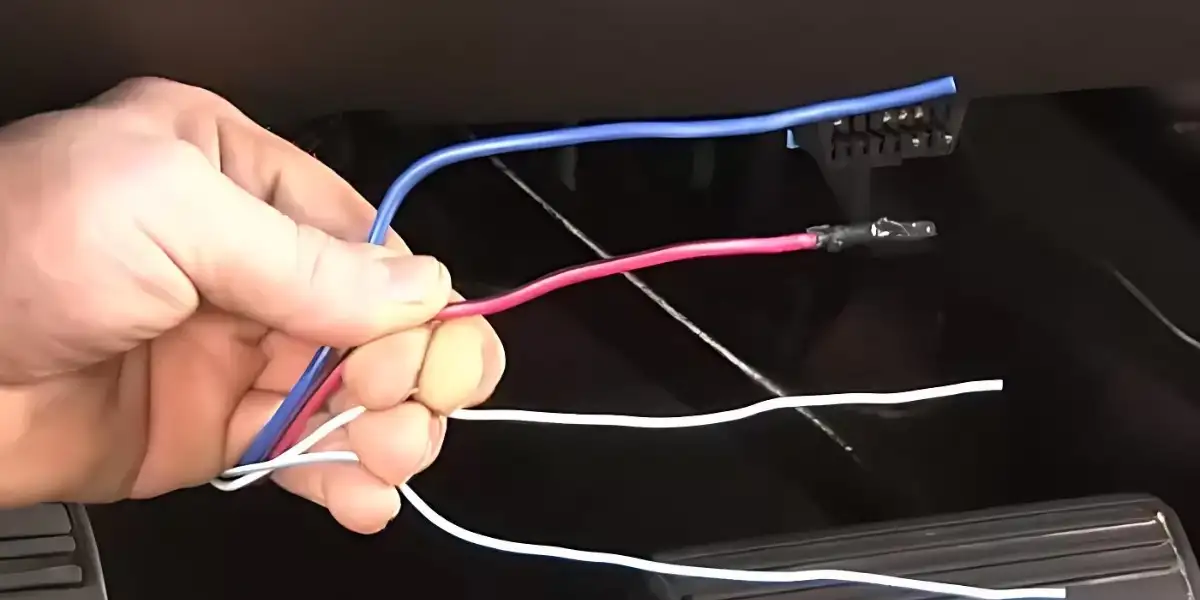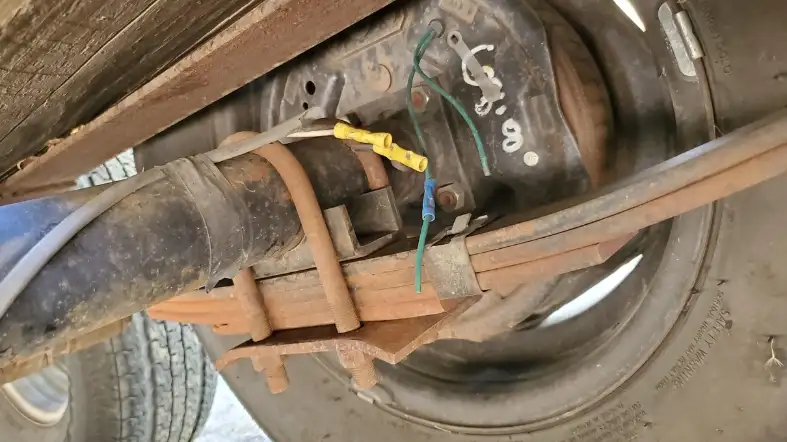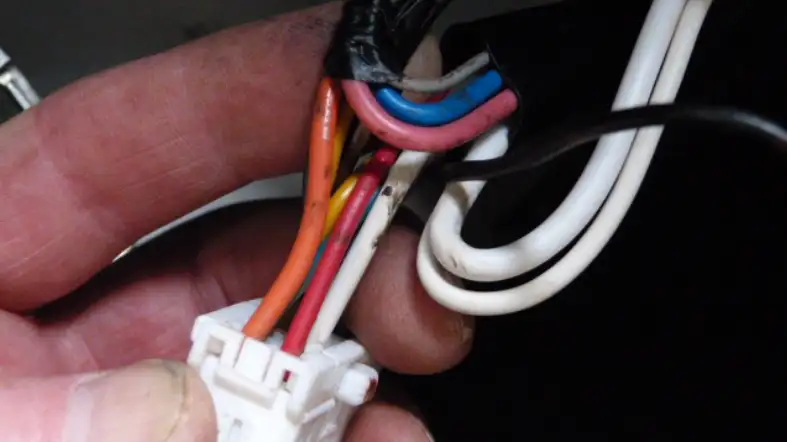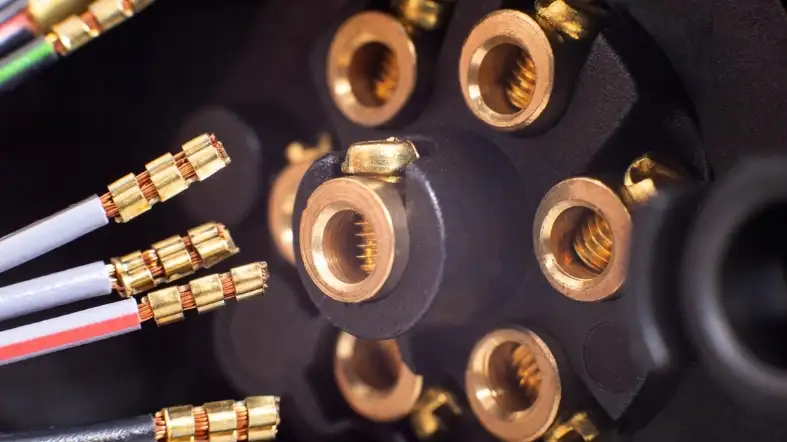What Size Wire For Trailer Brakes? If you’ve ever pondered this question, you’re not alone. The wire size you choose is pivotal for the functionality and safety of your trailer brakes.
This article demystifies the factors you need to consider, from the number of axles to electrical requirements. Read on to ensure your journey is as smooth as it is secure.

What Size Wire for Trailer Brakes?
The typical wire size recommended for trailer brakes is 12 to 14 gauge, which can accommodate the requirements of most trailer braking systems. If your trailer has two or fewer braking axles, you should use 12 gauge wire. If your trailer has three or more braking axles, you should use 10 gauge wire.
The Size of the Wire Based on the Number of Braking Axles:
| Number of Braking Axles | Wire Size |
|---|---|
| Two or fewer | 12 gauge |
| Three or more | 10 gauge |
The Size of the Wire Based on the Type of Trailer:
| Wire Size | Suitable for |
|---|---|
| 14 AWG | Standard trailer brake |
| 12-14 AWG | Most trailer braking systems |
| 10 AWG | Large trailers or heavy-duty applications |
Types of Wires Suitable for Trailer Brakes
There are several types of wires that are suitable for trailer brakes. Let’s take a look at some of the most common ones.
Copper Wires
Copper wires are a popular choice for trailer brakes because they have high electrical conductivity and are easy to work with.
Aluminum Wires
Aluminum wires are another option for trailer brakes. They are lighter than copper wires and less expensive, but they have lower electrical conductivity.
Tinned Wires
Tinned wires are copper wires that have been coated with a thin layer of tin. This coating helps protect the wire from corrosion and makes it more durable.
Stranded vs Solid Wires
Wires can be either stranded or solid. Stranded wires are made up of several thin strands of wire twisted together, while solid wires are made up of a single, solid piece of wire. Stranded wires are more flexible than solid wires, which makes them easier to work with.
Importance of Correct Wire Size for Trailer Brakes

It’s important to choose the correct wire size for your trailer brakes for several reasons.
Electrical Conductivity
The size of the wire affects its electrical conductivity. A larger wire can carry more current than a smaller wire.
If you use a wire that is too small, it may not be able to carry enough current to power your trailer brakes effectively.
Safety Considerations
Using the wrong size wire can also be a safety hazard. If the wire is too small, it can overheat and cause a fire. It’s important to choose the right size wire to ensure that your trailer brakes work safely and effectively.
Reliability of Braking
Using the correct wire size also helps ensure that your trailer brakes work reliably. If the wire is too small, it may not be able to provide enough power to the brakes, which could cause them to fail when you need them most.
How to Determine the Right Wire Size for Trailer Brakes
Check the Number of Axles on Your Trailer
The first step in determining the right wire size for your trailer brakes is to check the number of axles on your trailer.
If your trailer has two or fewer braking axles, use 12 gauge wire. If your trailer has three or more braking axles, use 10 gauge wire.
Consider the Power Requirements of Your Brakes
The gauge wire size for your trailer brakes largely depends on how much power the brakes need. According to the National Electrical Code, a 14 AWG supplies 20 amps to power standard electric brakes.
However, larger trailers may need a more powerful brake controller installed. In this case, it’s best to skip 14 AWG wires and use larger-sized ones (wires with smaller AWG) such as 10 AWG wires.
Check the Compatibility With Your Trailer Wiring
It’s important to consider whether the larger wires are compatible with your trailer wiring.
Look at the diagram in your manual to see if 12 to 10 gauge sizes are compatible with your trailer wiring, since these sizes are heavy-duty trailer cables that are bulkier and longer than 14 AWG ones.
Choose the Right Wire Size Based on the Trailer Size
As a general rule of thumb, you can choose the right wire size based on the size of your trailer.
For small trailers with 1-2 axles, use 14 AWG wire. For medium trailers with 3-4 axles, use 12 AWG wire. For large trailers with 5 or more axles, use 10 AWG wire.
For example, if you have a small trailer with only one axle, you can use a 14 AWG wire to power your standard electric brakes.
However, if you have a large trailer with five or more axles, it’s best to use a 10 AWG wire to ensure enough power is supplied to the brakes.
Factors Influencing Wire Size for Trailer Brakes

There are several factors that can influence what size wire you should use for your trailer brakes.
Brake Type and Model
The type and model of brake you have on your trailer can affect what size wire you should use. Different brake models may require different amounts of power, so it’s important to check the manufacturer’s specifications.
Electrical Load and Resistance
The electrical load and resistance on your trailer’s braking system can also influence what size wire you should use.
A higher load or resistance will require a larger wire to ensure that enough power reaches the brakes.
Environmental Factors
Environmental factors such as temperature and humidity can also affect what size wire you should use for your trailer brakes.
In extreme conditions, you may need to use a larger wire to ensure that enough power reaches the brakes.
Regulatory Standards and Guidelines
There may be regulatory standards or guidelines that specify what size wire you should use for your trailer brakes. It’s important to check these standards and follow them when choosing a wire size.
Quality of Insulation
The quality of insulation on the wire can also influence what size wire you should use for your trailer brakes.
A higher quality insulation will help protect the wire from damage and ensure that it lasts longer.
Flexibility and Installation Complexity
Finally, you’ll need to consider how flexible the wire is and how complex the installation will be. A more flexible wire may be easier to work with, but it may also require a larger size to ensure that enough power reaches the brakes.
Common Mistakes and How to Avoid Them

When wiring trailer brakes, there are several common mistakes that people make. Here are some of the most common mistakes and how to avoid them.
Using Undersized Wires
One of the most common mistakes is using wires that are too small. As we mentioned earlier, using undersized wires can cause the wire to overheat and create a fire hazard. To avoid this, make sure to choose the right size wire for your trailer brakes.
Neglecting Insulation
Another common mistake is neglecting the insulation on the wire. If the insulation is damaged or worn, it can expose the wire and create a safety hazard. Make sure to check the insulation regularly and replace it if it’s damaged.
Incorrect Connections
Incorrect connections can also cause problems when wiring trailer brakes. Make sure to follow the manufacturer’s instructions and connect the wires correctly to ensure that your trailer brakes work properly.
Overloading the Circuit
Finally, overloading the circuit can cause problems when wiring trailer brakes. Make sure not to connect too many devices to the same circuit, as this can cause the circuit to overload and fail.
Maintenance Tips for Keeping Your Wires in Good Condition
To keep your wires in good condition, it’s important to perform regular maintenance. Here are some tips for maintaining your wires.
Regular Checks
Perform regular checks on your wires to make sure they’re in good condition. Check for any signs of damage or wear and replace any damaged wires.
Replacement Intervals
Make sure to replace your wires at regular intervals to ensure that they’re always in good condition. Check the manufacturer’s recommendations for how often you should replace your wires.
Safety Tips
Finally, make sure to follow safety tips when working with wires. Always turn off the power before working on electrical systems and use insulated tools to avoid electric shocks.
FAQs
Can I use aluminum wires instead of copper for my trailer brakes?
Yes, you can use aluminum wires, but they have lower electrical conductivity compared to copper.
Is 14 AWG suitable for large trailers?
No, 14 AWG is generally not recommended for large trailers; opt for 10 AWG instead.
Are tinned wires better for outdoor use?
Yes, tinned wires are more resistant to corrosion and are better suited for outdoor conditions.
Do stranded wires offer more flexibility than solid wires?
Yes, stranded wires are more flexible than solid wires, making them easier to work with.
Does wire insulation quality affect electrical performance?
No, wire insulation quality doesn’t directly affect electrical performance, but it does impact durability and safety.
Conclusion
Understanding the right wire size for trailer brakes is essential for safety and effective braking performance.
Whether you’re dealing with a 14 AWG or considering going as large as 10 AWG, making an informed choice can make all the difference.
Use this guide as a resource to ensure you’re on the right track.

